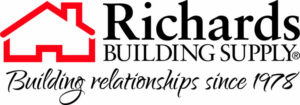Estimating Roofing Jobs: Avoid Underbidding and Maximize Margins
Mastering how to properly bid and estimate roofing jobs can dramatically improve your margins and grow your business. Most roofing contractors unknowingly underbid their work, cutting into profits before the project even starts. Learning to measure accurately, calculate true costs, and present professional bids is crucial—not just for winning jobs, but for making each one profitable.
The process starts with correct measurement. Begin by measuring the home’s exterior from the ground to calculate square footage. Always factor in roof pitch to adjust material needs correctly; steeper roofs require significantly more shingles. Missing this calculation can leave you short on material and over budget. Roofs with multiple slopes or architectural features need to be broken into sections and measured individually to ensure accuracy. Once you determine total material needs—including shingles, nails, underlayment, flashing, and ridge caps—you also need to account for labor, equipment rentals, and overhead costs like insurance, truck maintenance, and office expenses.
After tallying the real job cost, you price it for a margin. Many contractors make the mistake of simply adding 10% onto costs instead of calculating the true profit margin properly. To achieve a 10% margin, divide your costs by 0.90. Accurate pricing protects your profitability on every job.
Roofing Contractor Pricing Strategies
To strengthen your close rate, offer Good, Better, Best pricing packages. This approach meets homeowners at different budget levels while upselling value-added options like premium shingles, upgraded underlayment, and enhanced services. Presenting options will help shift the homeowner’s focus from price shopping to value comparison, which ultimately benefits your bottom line.
Roofing Job Proposal Template for Contractors
However, even the best measurements and smartest pricing will not matter if your proposal isn’t clear and professional. That’s where using standardized proposal templates and purchase order (PO) templates becomes critical. A polished, detailed proposal builds instant trust with homeowners. It shows that you’re organized, reliable, and serious about the work. Every proposal should clearly list the scope of work, materials used, payment terms, start and finish dates, warranties, lien release guarantees, and contractor licensing information. Professional proposals not only win jobs—they reduce disputes and confusion later.
Roofing Purchase Order Template
Similarly, a clean purchase order template streamlines your communication with suppliers. Accurate POs help prevent material shortages, job delays, and surprise expenses that can wipe out profits. When you use a template consistently, you ensure that every material order is correct, documented, and accounted for in your job costing system.
Professional Roofing Proposals
Incorporating professional proposals and PO templates into your process creates discipline across your business. It reduces errors, improves customer satisfaction, and builds operational efficiency. Contractors who present professional paperwork also enjoy fewer questions from customers, faster payment cycles, and stronger word-of-mouth referrals.
In today’s competitive roofing market, it’s not enough to “eyeball” measurements or throw together quick bids. Homeowners expect clarity and professionalism. Suppliers expect precision. You need to run your roofing company like a true business, and that starts with using the right tools.
Richards Building Supply, combined with RBS CRM and the RBS Virtual Design Center, offers contractors the tools they need to modernize how they sell, estimate, and deliver projects. When you back up accurate bids with professional templates and systems, you turn every job into an opportunity to build trust—and profit.
Final takeaway: Accurate estimates win the job. Professional proposals and purchase orders protect your profit.
View a few testimonials here.
Clint Klepp
Director of Sales and Marketing
My Digital Business Card



